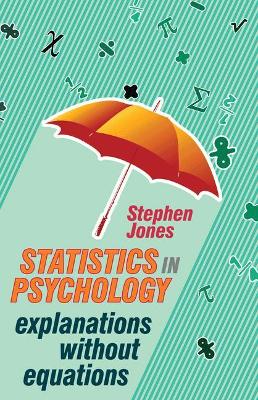How do you choose the appropriate statistical method for any given research task? What are the features that discern one statistical method from another, and for which research projects are they appropriate to use? Written specifically with the undergraduate psychology student in mind and for those who desire an explanation for the use of statistics in psychological research without the mathematics, this refreshing and much-needed introduction is invaluable for any psychology students who ‘don’t get numbers’. Breaking away from the traditional, numerical approaches, Jones delivers an engaging and insightful read into the rationale behind the use of statistics, drawing upon non-numerical examples and scenarios from both psychological literature and everyday life to explain key statistical concepts. Learn about the methods for testing populations and samples, standard errors, inferential and descriptive statistics as well as variables and participants.
This is an ideal companion to core textbooks and will serve a clearer understanding of statistical methods in psychology. By reading this book students can hope to gain a better sense of what makes empirically valid research and learn to critically evaluate facts and figure in any presented research. The foundations of psychology’s claims are the empiricism of well-conducted and reliable data.
- ISBN13 9780230247499
- Publish Date 15 September 2010
- Publish Status Out of Print
- Out of Print 10 November 2021
- Publish Country GB
- Publisher Macmillan Education UK
- Imprint Red Globe Press
- Format Paperback
- Pages 208
- Language English
